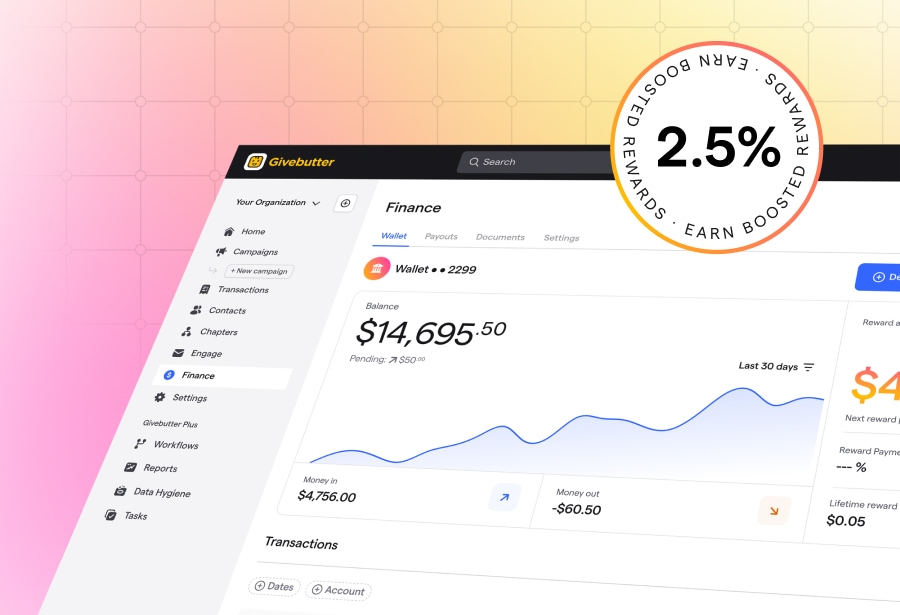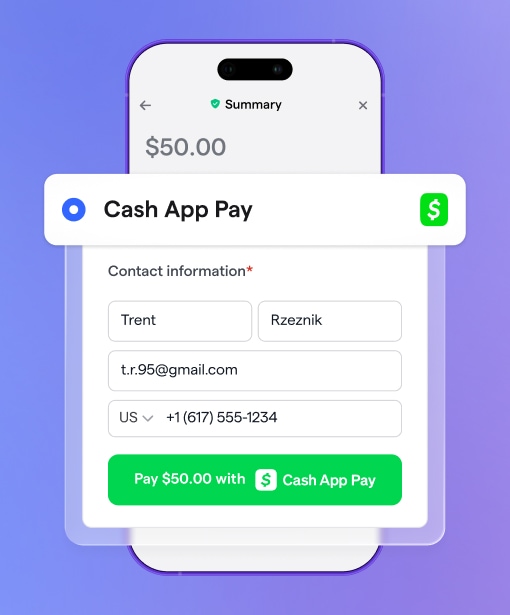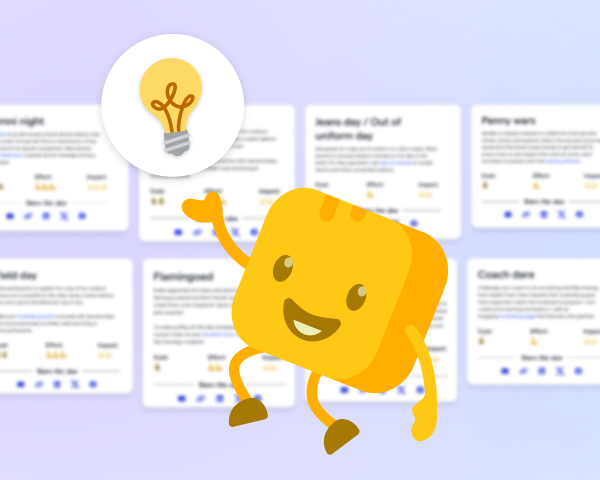Table of contents
Table of contents
You already know the day-to-day grind: team meetings, donor calls, budget reviews, writing the gala invite copy at midnight... But when’s the last time you zoomed out and checked in on how you’re really doing in your role?
This isn’t another dry explainer about what a nonprofit executive director technically does. This is your pep talk. Your moment to reflect, laugh, and maybe tweak a strategy or two. And hey—before you dig in, take our quiz to find out what kind of nonprofit ED you are (Visionary Energizer? Strategic Operator? Storytelling Sorcerer?) and get tips tailored to your style.
Take the quiz: What type of nonprofit executive director are you?
Let’s be real: nonprofit leaders wear a lot of hats—and capes, gloves, and sometimes roller skates. You might not fit neatly into one box (and we’d never try to squeeze you in!), but we’ve created four ED archetypes based on how you lead, fundraise, and rally your community.
Take this quiz to find out what type of nonprofit executive director you are and how to thrive in your role!
12 priorities of a high-impact executive director
As the CEO of a nonprofit, you’re involved in every aspect of the organization. Your work is often highly strategic, focused on empowering team members to manage the details. In a smaller organization, this may also include more hands-on tasks.
While your to-do list may feel endless, here’s what the top nonprofit executive directors focus on.
1. Day-to-day and strategic leadership 🧭
Nonprofit executive directors are leaders first and foremost. You guide, motivate, and support your team to perform at their best. As you oversee all departments, strong communication skills and empathy are essential to share your vision, chart the course, and bring everyone along for the journey.
2. Fundraising leadership 📈
In fundraising, EDs act as the face of the organization, overseeing strategy, allocating resources, and championing effective fundraising across the team. Even with staff managing programs and donor communications, you’ll need to be available (and confident) to discuss fundraising with major donors, the board of directors, and other key stakeholders.
Leadership in fundraising and donor engagement can make a big difference in your organization’s success. A recent study found that 56% of nonprofit leaders said their organization lacks a donor engagement strategy—so if yours does, you’re already ahead of the curve.
3. Financial management 💰
Understanding nonprofit accounting is key to effectively managing nonprofit operations and ensuring sustainable growth. As an executive director, you should be proficient in financial management, cash flow oversight, and data interpretation. You’re also responsible for ensuring your organization is compliant with all tax and financial requirements.
4. Human resources 👥
Nonprofit directors are responsible for resourcing the organization, which means they play an active role in human resources, especially in a smaller nonprofit. While you might delegate the day-to-day HR operations, EDs should outline effective practices for recruitment, onboarding, employee experience, and company culture.
5. Diversity and inclusion leadership 🌍
In addition to general HR leadership, nonprofit CEOs should actively champion diversity, equity, and inclusion (DEI). It’s your responsibility to ensure that DEI is a core component of the organization’s culture and create opportunities to welcome, empower, and celebrate everyone on your team.
6. Program strategy 📋
While the fundraising lead will typically own the fundraising program strategy, your role as an executive director is to provide alignment, vision, and clarity in strategic planning. As a liaison between the board and the fundraising team, you must balance long-term goals with immediate needs when planning programs and initiatives.
7. Board development 🤝
Nonprofit chief executives play a key role in developing and supporting the board. This can involve recruiting (and retaining) active board members, recommending operational improvements, and promoting resource development. You’re also responsible for facilitating communication between your board and staff members, and often for helping run board meetings.
Be intentional about building relationships with your board members beyond the board room. Block time on your calendar to reach out to them, and schedule meet-ups with them—this could be a meeting, coffee, or going out to a happy hour. — Sabrina Walker Hernandez, President/CEO of Supporting World Hope
8. Stakeholder management 🤲
Often the face of the organization, nonprofit executive directors should actively engage stakeholders like funding partners, grantmakers, and local government and business leaders. Your goal is to build relationships, secure partnerships, and meet shared goals.
Don’t forget that other nonprofits are valuable stakeholders, too. In fact, research showed that 73% of nonprofit collaborations in 2024 were successful.
9. Public relations 📣
In addition to stakeholders, nonprofit leaders should be comfortable communicating with the press and broader community. Whether you’re giving an interview or making a speech, it’s important to share your nonprofit’s passion, goals, and vision in a way that is clear, inspiring, and reflective of your brand.
10. Compliance 📝
While it’s best to seek expert advice, it’s the nonprofit CEO’s responsibility to ensure compliance with all necessary laws and regulations. This includes financial management, tax reporting, employment, record keeping, security, and data privacy.
11. Operations management ⚙️
In a larger organization, you may have an operations lead. However, the executive director still oversees operations such as securing facilities and resources, streamlining invoice processing, and creating a system for volunteer management.
12. Technology 💻
Technology can be a powerful contributor to your organization’s success. As executive director, you’re responsible for equipping your team with the best nonprofit software for their needs—from fundraising platforms and design tools to internal communications systems that increase productivity and impact.
What makes a great nonprofit executive director
As a Nonprofit CEO, you carry a lot of responsibility, often balancing competing priorities and limited resources. Effective executive directors navigate these challenges using their experience, leadership traits, and a commitment to learning.
There’s no one playbook for success. Every nonprofit executive director job description looks slightly different. But if your goal is to make a lasting impact, these are the qualifications, skills, and qualities you should aim for.
Must-have qualifications for executive directors
You don’t need a specific degree to become an executive director, but relevant experience and key competencies will help you stand out as the executive director nonprofits are looking for. The foundations for a strong ED include:
- Leadership experience 🎉 Demonstrate the ability to lead others toward success, whether through a previous nonprofit or business role, or a leadership position in your community.
- Technical abilities 🥼 Expertise in your nonprofit’s field is a bonus, particularly for making informed decisions and applying for specialized grant funding.
- Financial acumen 📊 Show that you can understand financial reports, manage nonprofit budgets, and turn that data into strategic action.
- Fundraising skills 💰 Executive directors who take an active interest in fundraising are highly valued.
- Management experience 💼 Highlight your background in managing people, projects, or programs—ideally all three.
- A relevant degree 🎓 While not a requirement, a bachelor's or advanced degree can help you develop valuable skills, powerful connections, and a passion for lifelong learning.
Key skills for leading a nonprofit successfully
The best nonprofit CEOs are highly competent in “soft skills” like communication and resilience, and are natural or learned leaders.
Impactful executive directors master—and continually sharpen—the following skills:
- Leadership 📣 Capture the attention and spirit of those around you. Use your words, inspiration, and actions to guide your team toward success.
- Relationship building 🤝 Take an active interest in building meaningful relationships with those around you, including your nonprofit board, team members, stakeholders, and the wider community.
- Decision making ✔️ Make strategic decisions, delegate when appropriate, and move forward instead of being indecisive.
- Resilience and adaptability 💪 Respond to unexpected challenges positively and proactively so you can model resilience for your team.
- Curiosity ❓ Always be open to new ideas, strategies, and tools that can improve your nonprofit’s operations, programs, and fundraising efforts.
- Communication 💬 Develop an expert ability to tailor your communication based on the audience and situation—from sharing good news with your board to navigating difficult conversations with staff.
Report back to board members so they can see the fruits of their labor. If you ignore this important final step, board members won’t feel as good as they could about having helped. — Sabrina Walker Hernandez, President/CEO of Supporting World Hope
How to grow in your executive director role
You’re taking care of tasks every day, but how do you truly thrive in the role of nonprofit executive director? We spoke with some of our nonprofit experts to bring you practical advice that helps you excel and lead confidently.
Fundraising, marketing, and growth consultant Linda Handley, who has served as a CEO, nonprofit founder, and executive director for many years, had this advice to share:
New executive directors should focus on building strong relationships with their board, staff, and community, while setting clear, achievable goals to guide their organization's mission. To prevent burnout, they should prioritize self-care, delegate effectively, and establish a supportive network of peers and mentors.
If you’re looking to grow in your role, here’s what to focus on:
- Develop your leadership skills 💚 Work on becoming the best leader you can be. Strong leaders are better equipped to guide their teams, ensuring higher levels of future success.
- Strengthen your board 🏆 Build strong, collaborative relationships with your board members. Support them in their roles so you can work harmoniously together to reach shared goals.
- Recruit the right team 👋 Identify the qualities and experience your team needs. Hire the right people accordingly—then equip them with the tools they need to be successful in their roles.
- Delegate outside your wheelhouse 📝 You can’t (and shouldn’t) do it all. Delegate where you can so you can focus your attention and energy on the tasks and responsibilities that you excel at.
- Pursue personal development 📚 Adopt a habit of learning new things. Whether it’s exploring new tools, writing grant proposals, or time management, fresh ideas and skills can lead to major wins in leadership.
- Seek out mentorship ⭐ Find someone a few steps ahead of you in the field and ask if they’ll mentor you. Someone to act as your guide (and biggest cheerleader) can make all the difference in your growth.
Michael J. McGovern of Modern Financial Care offered these words of wisdom for new nonprofit EDs:
Don't pull yourself in too many directions. Focus on what you're good at. If you can spend the majority of your time on the things you're great at and partner or delegate the tasks that aren't in your sweet spot, you'll keep your motivation and stay energized. When you're pulled in a million directions each day and doing things you don't have the skill set to accomplish, you'll get lost in the work instead of being inspired by your results.
Jumpstart your executive director success with Givebutter
As a nonprofit executive director, you wear many hats and carry significant responsibility. But it’s also a meaningful and highly rewarding role for those passionate about their cause and love empowering others to succeed.
If your goal is to grow your impact as an executive director, invest in software and tools that save you—and your team—time and resources.
Givebutter’s modern, user-friendly platform can empower your team to manage donor communications, seamlessly track data with a nonprofit CRM, and delight your supporters with user-friendly fundraising pages—enhancing the giving experience for everyone.

Voted #1 by nonprofits like yours
Sign up for your free Givebutter account today and see how you can start making a difference in your role within moments.
Nonprofit executive director FAQs
Succeeding in this role takes flexibility, growth, and trying out different strategies, so it’s completely normal to have questions. Here are some of the most commonly asked questions about being a nonprofit executive director, along with our best advice.
What does a nonprofit executive director do?
The duties of a nonprofit executive director include running day-to-day operations, guiding the long-term strategy, and ensuring the organization remains aligned with its strategic goals. Nonprofit EDs work closely with their staff and board of directors to achieve their mission.
In terms of seniority, leadership, and impact, the role of executive director at a nonprofit organization is equivalent to a CEO at a for-profit.
What’s the difference between a nonprofit CEO and an executive director?
There’s no functional difference between a nonprofit CEO and an executive director—both refer to the top executive responsible for running the organization. Many people associate the CEO role with a for-profit company, so some nonprofit leaders prefer to adopt the title of executive director. The nonprofit executive director role and responsibilities mimic those of a traditional CEO, just within the nonprofit sector.
How much do executive directors of nonprofits get paid?
The average salary for executive directors at a nonprofit organization is around $112K, though this varies based on organization size, location, and budget. This higher salary reflects the wide range of executive director duties in a nonprofit organization.
Who does a nonprofit executive director report to?
While the executive director serves as the CEO of the organization, they report directly to the board of directors. One of the nonprofit executive director’s responsibilities is to carry out the wishes of the board, which is why they oversee the role. The executive director works closely with the board to achieve the organization’s goals.
.svg)






%20(1).png)



.svg)













